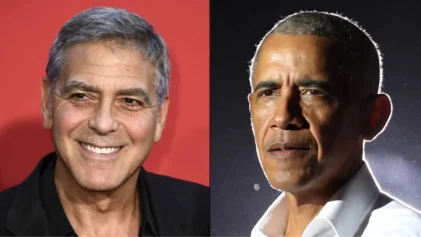When President Obama ended “Don’t Ask, Don’t Tell,” there was a hue and cry in some quarters that gays and lesbians soon would be running amok, tearing apart the very fabric of American military institutions, leaving straight service men and women uncomfortable at best and fearful at worst.
But a funny thing happened on the way to Sodom and Gomorrah: Nothing.
The military continued business as usual, for the most part. There were a few lawsuits from former gay military personnel seeking restitution and reinstatement, but overall, folks enlisted, were discharged, some went to war and others went on to other assignments as they always have.
There was talk that Obama’s announcement that he supported same-sex marriage would cost him the black vote, cost him the election and destroy the separation of church and state.
Well, maybe not.
At the time of Obama’s announcement, a Pew Research poll showed that just 39 percent of black Americans said they supported gay marriage, compared to nearly half of whites surveyed. Still, Pew also reported recently that 68 percent of African Americans surveyed said the announcement did not alter their view of the president while 16 percent said they viewed him more favorably and 13 percent less favorably.
This week, however, a new ABC News/Washington Post poll revealed more African-Americans have moved in favor of same-sex unions.
The poll, produced for ABC by Langer Research Associates, found that support for gay marriage has reached a new high among African-Americans in ABC/Post polls, moved up from four in 10 in recent surveys to 59 percent now.
The NAACP recently passed a resolution, 62-2, opposing any policy or legislation that “seeks to codify discrimination or hatred into the law or to remove the constitutional rights of LGBT citizens.”
Was it the effect of the bully pulpit? By taking a stand did the president make it easier for other African Americans to speak out in support of broadening the definition of civil rights, which has long been synonymous with the struggle of black Americans to gain equality in this country?
“It’s long been an article of faith with me that equality means equality and if we’re all going to be equal in America then marriage is one of those equal things we all need to be able to do,” Julian Bond, chairman emeritus of the NAACP, told host Michel Martin on NPR’s “Tell Me More.”
Bond said the issue was already on the legendary civil rights organization’s agenda before Obama made the statement, but “in effect, I think he gave Americans permission to think about this and talk about this in ways they had not done so in the past.”
Certainly Obama, like most modern presidents, has mastered the art of delivering speeches or making announcements in front of targeted crowds to deliver a message and show the American people there are others who support his stance, delivering remarks at a university about making college more affordable, taking the tax increases for the rich argument to factories where working-class voters hold Fat Cats suspect.
President Harry Truman used his position to desegregate the armed forces. Lyndon Johnson used a nationally televised address to talk about civil and voting rights for African Americans. Both presidents used their positions to signal that they intended to lead a more tolerant America, even in the face of personal political risk. Both of their courageous stands became to be seen as historic markers for a nation struggling to correct its shameful racial legacy. It appears that Obama may have secured his own moment in history, with a few sentences during a television interview perhaps permanently altering the way an entire nation views the rights of a select group in its midst.
Many of us of a certain age certainly recall that Bayard Rustin, a chief architect of Martin Luther King Jr.’s “Poor People Campaign,” did not get his public due until years after his death because of fear that the civil rights movement would be hurt if it were known that a gay black man was a key strategist.
Could we and would we want to keep Rustin closeted in today’s political environment?
Presumptive GOP presidential nominee Mitt Romney faltered on the issue of tolerance after the conservative right drove openly gay national security and foreign policy spokesman Richard Grenell out of the Romney campaign.
If he can’t show his campaign staffers that he has their back as the “team” digs in for the long road to the White House, how effective will he be in convincing the American public where his principles lie?
In 2008, candidate Obama used a form of the bully pulpit to deliver a galvanizing speech on race in the wake of the controversy over his relationship with his pastor, the Rev. Jeremiah Wright.
Grenell was Romney’s Wright moment to speak up for tolerance, not lament the resignation of someone who was a substantial policymaker for his campaign.
And if the numbers show that black voters won’t abandon Obama for taking a principled stance, perhaps he now can be emboldened to speak up more directly on issues that affect the African-American community.
Jackie Jones, a veteran journalist and journalism educator, is director of Jones Coaching LLC, a career transformation firm.


